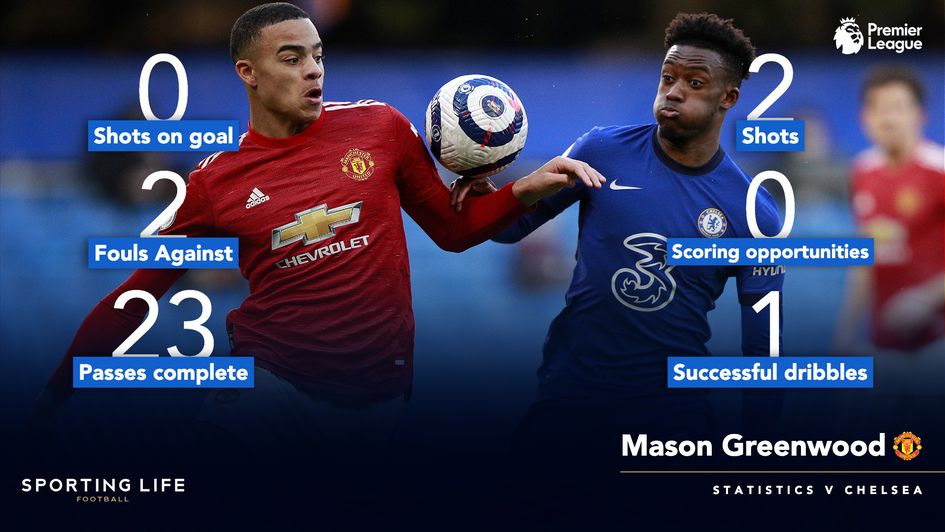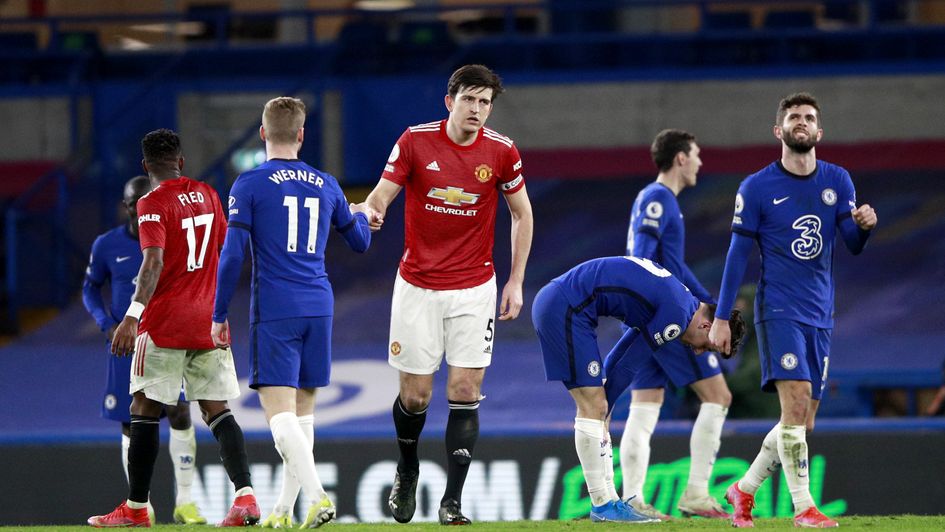There was plenty on the line for both Chelsea and Manchester United as they met on Sunday, but they couldn’t be separated as the two sides settled for a point apiece.
This certainly wasn’t a match that will live long in the memory with a first-half decision not to award a penalty the biggest talking point.
It was no exhilarating, free-flowing encounter, but there were still things to learn from the 0-0 draw at Stamford Bridge.
Ole Gunnar Solskjaer showed he has more than one tactic
Tuchel’s decision to start Olivier Giroud suggested he believed Manchester United would stand off Chelsea, allowing them to have the bulk of possession.
This is a ploy used many times by Solskjaer against ‘Big Six’ teams, and against Tuchel’s Paris Saint-Germain in the Champions League. The sight of Dan James in the United lineup hinted at a counter-attacking strategy.
However, James was primarily selected to lead a high press. Victor Lindelof and Harry Maguire set an extremely high defensive line with Giroud unable to make the most of the space in behind.
Passing out from the back, Chelsea only had two players (N’Golo Kante and Mateo Kovacic) in the centre of the pitch. Tuchel’s 3-4-2-1 shape made it awkward for the Blues to play through United.
Chelsea showed more willingness to counter-press in the second half, once Tuchel and his players had time at the break to regroup, and this resulted in United making more mistakes and the hosts seeing more of the ball.
This turned the match into something closer to what Tuchel surely expected.
Chelsea missed a trick by not starting Timo Werner
One of Tuchel’s biggest decisions regarding his team selection was the case to start Giroud up front, taking Timo Werner out of the side.
The irony here was that, in the end, it was the perfect match for the German forward. Werner surely would have exploited the space in behind Lindelof and Maguire with his blistering pace.
Even if he’d been denied the service, the threat of the German breaking United’s defensive structure almost certainly would have pushed them closer to their own goal, giving Chelsea more time and space to control play in midfield.
By the time Werner was introduced off the bench after the hour mark, the dynamic of the game had changed and United had adopted a more orthodox absorb and break approach.
Had he been in from the start, this match could have had a very different complexion.
Mason Greenwood missed his chance to be main striker
Edinson Cavani’s injury forced Solskjaer’s hand somewhat, but his selection of Mason Greenwood to lead the line was the greatest show of faith the Norwegian has made in the teenager as a true number nine.
For all that Greenwood has impressed off the right for Manchester United, it’s through the middle where he’s supposed to be most comfortable.
While Greenwood has played as a centre forward for United a number of times, this was the biggest game he’d been picked in that position for.
The 19-year-old played his part in counter-attacking moves, often coming deep to pick up the ball and spin forward, but there was little sign of the killer instinct that make the best number nines so potent.
On this showing, Manchester United are as dependent on Cavani as any other player besides Bruno Fernandes.
It’s not just that the Uruguayan knows how to put the ball in the back of the net, it’s that he gives his team an attacking purpose. Greenwood didn’t do that here as he spurned his big opportunity in his favoured position.

Back ‘Big Six’ games to underwhelm this season
While ‘Big Six’ clashes are usually worth noting down in the diary, that hasn’t been the case this season.
Indeed, this encounter only added to a well-established trend. We have now seen six goalless draws, between Manchester United and Manchester City, Manchester United and Chelsea (twice), Liverpool and Manchester United, Tottenham Hotspur and Chelsea and Arsenal and Manchester United.
There have also been insipid matches between Manchester United and Arsenal and Tottenham Hotspur and Chelsea which were only decided by a single penalty kick in each. The trend is too entrenched to be an anomaly.
It can’t be a coincidence that so many of these sort of matches have been produced in one season.
United, in particular, have failed to score in any of their last six league matches against ‘Big Six’ opponents.
It could be the case that the packed schedule is denying managers and coaches time to work on specific game plans for the biggest fixtures. A lack of final product was evident from both Chelsea and United throughout, pointing to fatigue.
Against lower calibre opponents, this can be masked, but perhaps not so much against teams near the top.







